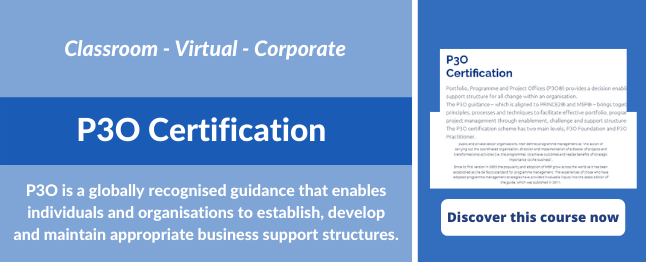Who is the PMO Manager?

Companies looking for closer project tracking are opening PMO departments.
What exactly is this all about?
The PMO, which stands for Project/Programme/Portfolio Management Office, is the body of the organization that is responsible for all ongoing projects and programs. It can be seen as a central repository where organizations have oversight of all change initiatives and are able to co-ordinate them.
PMO ensures that business practices and operations are proceeding in the right way, on time, and on budget.
This is critical as organizations deliver value through projects and programs.
According to PMI’s Pulse of the Profession report, companies that align their corporate PMO with business strategy not only have 38% more projects that meet goals than those that don’t, but also 33% fewer projects that are considered failures.
Why a PMO Manager?
The Project/Program Management Office is one of the fastest-growing areas of focus for competitive companies and is now fundamental to optimised project management.
To keep up with market expectations, competition, and the economic conditions created by the current global competitive environment, companies must be able to do more with fewer resources.
The introduction of Project Portfolio Management and PMO systems shows how to turn project management into a value-generating machine. The probably best-known description of the functions of a PMO generally includes only those functions aimed at providing support for individual projects.
However, if these functions are complemented by others that support top management in defining organisational policies and action plans to link business strategies with operational planning, the PMO can play a driving role in achieving the company’s business objectives and generating profits and competitive advantages.
In this sense, the functions and skills to be developed relate to the following areas:
- Operational and methodological support.
- Management of delivery infrastructure.
- Management of resource integration.
- Technical support management.
- Alignment with business objectives.
Company projects may differ in terms of expectation, duration, complexity and resources involved. For this reason, a PMO Manager is needed, i.e. the person who manages all the different projects.
The role of the PMO Manager, therefore, requires not only technical skills but also personal skills, transversal skills and soft skills related to team building and team management. S/he plays the role of the leader, the one who has to lead the group to achieve the result, assessing how to optimise the resources at his disposal.
In addition, the PMO Manager plays a fundamental role as a link with the different offices.
The responsibilities of the PMO Manager
PMO managers perform a wide range of tasks, in order to successfully oversee all aspects of the project development process. If the organization does not have an existing PMO yet but is planning to install one, the PMO Manager will be the one to build and design the PMO.
The PMO Manager is also the one to appoint and/or recruit PMO resources based on the chosen PMO model.
Once the PMO is installed, daily essential responsibilities are:
- Follow all ongoing projects and programs,
- Responsible for all PMO personnel,
- Overseeing project development,
- Facilitate project planning,
- Facilitate the governance process,
- Facilitate the change control process,
- Performing financial analysis,
- Providing financial reports and budget outlines,
- Modify processes and organize workstreams,
- Ensure that documentation is correct and up to date,
- Ensure team members uphold the organization’s standards,
- Collaborating with other department leaders,
- Project and program documentation,
- Mentor project managers.
The necessary skills for being/becoming a PMO Manager
The PMO Manager is responsible for a very key part of the organization as the PMO guides all ongoing projects and programs. Therefore, the PMO Manager has to be able to have a clear overview and comprehensive vision in line with the organization’s vision.
At the same time, the PMO manager must be able to focus on details and technicalities and have great interpersonal skills as he/she will work closely with professionals at many different levels.
Often a PMO manager has at least the following set of core skills:
- Problem-solving and pragmatic,
- High level of organizational skills,
- Great leadership,
- Critical thinking and attention to detail,
- Ability to perform under pressure,
- Excellent verbal and written communication skills,
- Exceptional stakeholder skills,
- Financial knowledge and commercial outlook,
- Wide knowledge of project and change management,
- Extensive knowledge of the use of different tools.
Successful PMO Managers have the ability to focus on details and technicalities while simultaneously retaining a comprehensive vision of the big picture. They also work well under pressure, have great interpersonal skills, and can juggle several different projects and responsibilities with ease and composure.
In addition, a PMO manager can be asked to show his project management expertise by means of a PMP certification and/or a certification in Portfolio Management.
How to become a PMO Manager?
In addition to the knowledge acquired during their studies, a PMO Manager must also possess a number of technical skills that can be acquired through a targeted training course.
For example, Axelos P3O course provides a decision enabling/delivery support structure for all change within an organisation. The P3O guidance brings together a set of principles, processes and techniques to facilitate effective portfolio, programme and project management through enablement, challenge and support structures.
Become now a PMO Manager booking your seat for the next P3O course!








